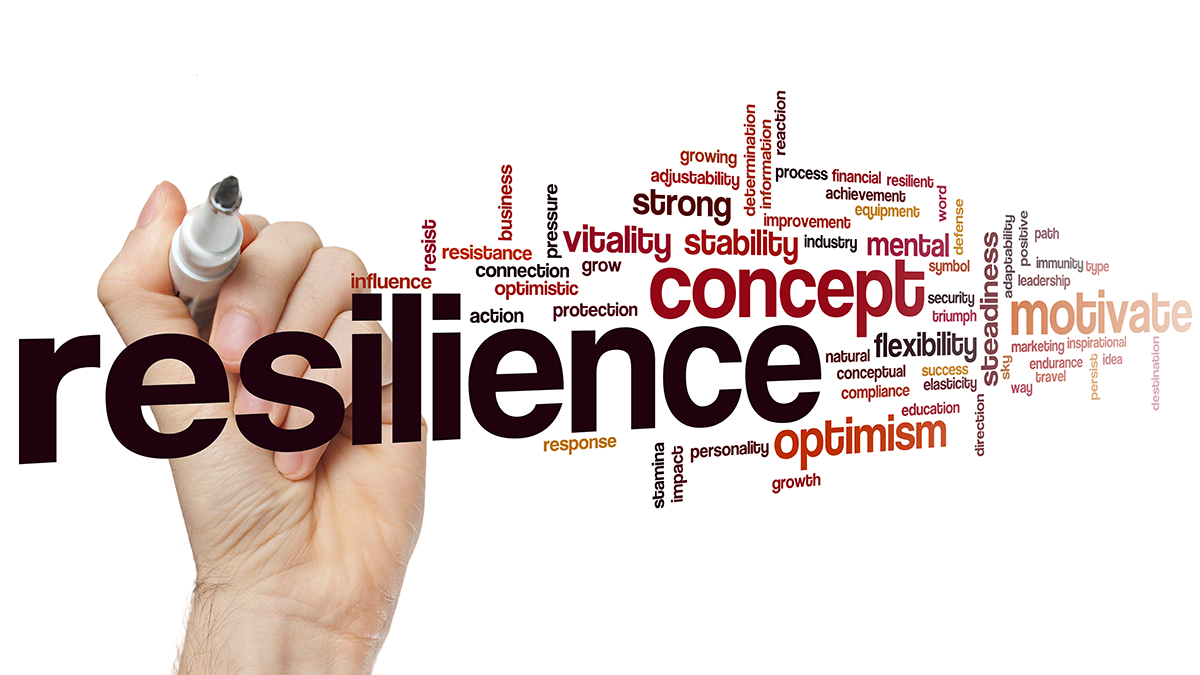Carolina psychologist Andrea Hussong offers tips on building resiliency while we juggle work, home life and a new isolation.

Work and home lives are merging for many. Each day brings potentially upsetting news. While navigating the new normal, we all could use more strength.
To help us become more resilient during this time, Andrea Hussong, a professor in Carolina’s Department of Psychology and Neuroscience, offers some practical advice.

“Sometimes the word resilience is something we think about as we look back to a time when we felt resilient and it’s defined by the outcome,” Hussong said. “But resilience really is more about being able to come through a challenge in a way that you can feel good about the outcome. It may be that when you’re in a challenge, you feel stressed or frightened or overwhelmed but you find a way to engage in your life and move forward to your goals despite the challenge.”
To keep moving forward, Hussong advises the following:
Adjust goals and expectations for yourself
“This is really important during this time for people trying to do multiple roles out of their home at the same time,” she said. “For people in the University, spring is a time when our goals for the year are often coming to fruition. We’ve got a lot of deadlines and a lot happens.
“I’m hearing people starting to think about how they’re going to adjust their expectations. But it really needs to be done now. Decide what is ‘Mission Central,’ if you will, whether that’s running a department or it’s getting through your classes or whatever. Be willing to say that some things can wait and coordinate with the people around you to do it.”
Practice physical distancing, not social distancing
“Some people are beginning to be really careful to say physical distancing, instead of social distancing because what we really want is space between each other physically, not socially. Intentionally engaging your social networks, I think is critical to resilience. People are taking time to be creative with online happy hours and dinner parties with friends and connecting with people they haven’t seen in a long time.
“Often, when we are faced with challenges, there are silver linings. Reconnecting with old friends may be one of those silver linings. It feels like a perfectly good excuse to say ‘It’s been years. How are you?’”
Be mindful of how you work
“We work differently if we’re at home with children in the next room or other things are not the same. It’s hard to go through six hours of back-to-back Zoom meetings without taking breaks or without checking in to make sure that the other things in life are going on.
“Some people enjoy long periods of intense work time without a break, but others don’t and still find themselves working straight through the day without taking an intentional break. Playing with different ways of doing work and juggling time with family is important and, for some people, that may mean doing something like setting an alarm for every 20 minutes so they get up, walk around and check in.”
Take care of yourself
“For people who take care of others, it’s important to remember that we’re really at our best as caretakers when we take care of ourselves, too. Some people are good at self-care and put a lot of thought into it, but we know that self-care usually gets worse when we’re stressed.
“Finding ways to focus on yourself and introducing some self-care will help strengthen your resilience.
For some, it’s having a half an hour in a room without interruption or taking a walk outside. Intentionally make time each day to take care of yourself so that you’ve got the resources to take care of other people.
“You can think about love, caring, coping in different ways. One way is through self-care. Re-set yourself each day, be mindful of your emotions, check a to-do list for taking care of you and focus on what’s going on for you. This will reduce stress and give you more energy to put it into other activities like helping manage things with your family. A physical resilience comes through this practice, but a social resilience also comes through it.
“Eating and sleeping regularly, going outside and getting regular exercise goes a really long way. There’s a lot of evidence that resilience is related to the extent to which we’re able to take care of our bodies.”
Help others, grow as a person
“I’ve heard a lot of people starting to talk about this. A lot of research shows that you grow as a person and you feel stronger as a person when you’re helping others.
“Sometimes you help them in even small ways. You might be helping them just by giving them a little benefit of the doubt or refraining from judgment or allowing them to be a little bit grumpy and letting it slide. But allowing yourself to focus on other people takes a little bit of the stress and anxiety that comes from a focusing on yourself too much. And, it helps you have better relationships.”
Celebrate more
“We’re isolated in our homes at this point, but when we eventually get back together a lot of milestones within the University will have come and gone. People graduated. People retired. People promoted.
“It’s incumbent on us to reach out and celebrate those things either on our own or with our social group. If something important happens ─ someone is promoted or had a big piece of work or report go out ─ acknowledging that we’re moving forward with great effort in doing those things is important, particularly at a university where these long-term goals can have anti-climactic endings if we don’t make an effort.
“Doing things like that will help us weather this time and emerge, hopefully, having accomplished our goals.”
By Scott Jared, The Well
